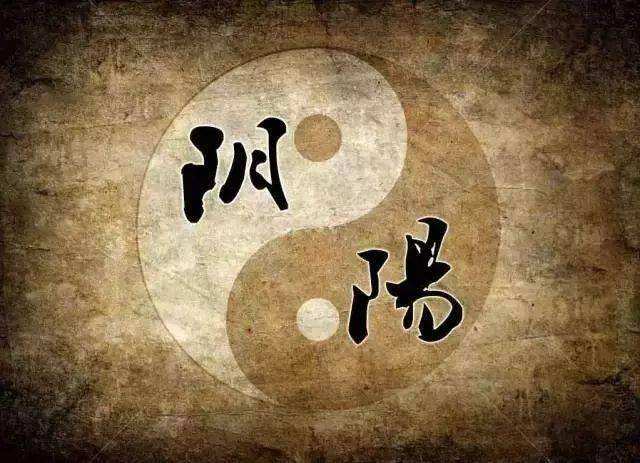
**道家霸气侧漏,一鸣惊人的神级金句** **Dominant and Thunderous: Divine-Level Quotes from Taoist Philosophy**
AdminYupShare

道家思想源远流长,其哲学体系中蕴含着无数深邃的智慧和启示。这些话语不仅充满哲理,还带有浓厚的文化底蕴和仙气飘飘的独特魅力。
Taoist philosophy boasts a profound legacy, containing boundless wisdom and revelation. These quotes are not only deeply philosophical but also carry rich cultural depth and an ethereal, transcendent charm.
以下是几条出自道家经典或被广泛认可为体现道家精神的“神级金句”,它们能够让人瞬间领悟深刻的道理,仿佛打开了一扇通往永恒智慧的大门。
Below are divine-level quotes from Taoist classics or widely recognized embodiments of Taoist spirit. They instantly convey profound truths, like opening a gateway to eternal wisdom.

1. **“道可道,非常道;名可名,非常名。”**
**—《道德经》第一章**
*"The Tao that can be spoken is not the eternal Tao;
The name that can be named is not the eternal name."*
— *Tao Te Ching*, Chapter 1
**解读 Interpretation:**
这句话强调了“道”的不可言说性和超越性。真正的“道”是无法用言语完全描述的,任何定义都只是相对的概念,并不能涵盖其本质。这提醒我们,在追求真理的过程中要保持开放的心态,不要被表象所迷惑。
This emphasizes the ineffable and transcendent nature of the Tao. True Tao cannot be fully described by words; any definition is relative and fails to capture its essence. It reminds us to maintain an open mind in the pursuit of truth, free from illusions.
2. **“上善若水,水善利万物而不争,处众人之所恶,故几于道。”**
**—《道德经》第八章**
*"Supreme goodness is like water,
Nourishing all without contention,
Flowing to places others disdain,
Thus it is near to the Tao."*
— *Tao Te Ching*, Chapter 8
**解读 Interpretation:**
最高尚的品德就像水一样,滋润万物却不与之争高下,总是流向最低的地方。这种无私奉献、谦逊低调的态度最接近于“道”的境界。它教导人们在生活中要学会包容和忍让,以柔克刚,达到和谐共生的状态。
The highest virtue flows like water—nourishing all without rivalry, always seeking the low ground. This selfless, humble attitude embodies the Tao. It teaches us to embrace tolerance and yield, overcoming hardness with softness to achieve harmony.
3. **“天下皆知美之为美,斯恶已;皆知善之为善,斯不善已。”**
**—《道德经》第二章**
*"When all recognize beauty as beauty,
Ugliness arises;
When all deem good as good,
Evil emerges."*
— *Tao Te Ching*, Chapter 2
**解读 Interpretation:**
当所有人都认同某种事物的美好时,其实也同时界定了什么是丑陋;同样地,当我们标榜某种行为是善良的,也就意味着存在相对的邪恶。此句揭示了二元对立观念的局限性,鼓励人们超越表面的价值判断,去探寻更深层次的真实。
Universal recognition of beauty simultaneously defines ugliness; praising good implies the existence of evil. This exposes the limits of dualistic thinking, urging us to transcend superficial judgments and seek deeper truths.
4. **“致虚极,守静笃。万物并作,吾以观复。”**
**—《道德经》第十六章**
*"Attain utmost emptiness;
Maintain steadfast stillness.
All things arise together—
I watch their return."*
— *Tao Te Ching*, Chapter 16
**解读 Interpretation:**
内心应保持极度的虚空和平静,这样才能观察到世间万物的本质规律。在喧嚣纷扰的世界里,唯有通过内在的宁静才能洞察变化背后的不变之道。这是一种修炼心灵的方法论,也是对宇宙自然法则深刻理解的表现。
Empty the mind and anchor stillness to observe nature’s patterns. Amid chaos, only inner tranquility reveals the unchanging Tao behind flux. This is a methodology of spiritual cultivation and deep understanding of cosmic laws.
5. **“人法地,地法天,天法道,道法自然。”**
**—《道德经》第二十五章**
*"Humans follow Earth;
Earth follows Heaven;
Heaven follows Tao;
Tao follows nature."*
— *Tao Te Ching*, Chapter 25
**解读 Interpretation:**
人类的行为应当效仿大地的承载能力,大地遵循天空的变化规律,而天空又依循“道”的指引,“道”则体现了自然本身的运行方式。此句话强调了顺应自然的重要性,提示我们要尊重自然法则,与环境和谐相处。
Humans emulate Earth’s endurance; Earth follows Heaven’s cycles; Heaven obeys Tao; Tao embodies nature’s way. This stresses aligning with nature, urging respect for natural laws and harmony with the environment.
6. **“夫唯不争,故天下莫能与之争。”**
**—《道德经》第六十六章**
*"By not contending,
None under heaven can contend against them."*
— *Tao Te Ching*, Chapter 66
**解读 Interpretation:**
正因为不主动与其他事物争夺,所以反而没有人能够真正战胜它。这里所说的“不争”并不是软弱无能,而是指一种超越世俗竞争的智慧——懂得适时退让,反而能在更高层次上取得胜利。
Non-contention makes one invincible. "Not contending" is not weakness but transcendent wisdom—yielding strategically to achieve victory beyond worldly competition.
7. **“不出户,知天下;不窥牖,见天道。其出弥远,其知弥少。”**
**—《道德经》第四十七章**
*"Without stepping outdoors,
Know the world;
Without peering through windows,
See the heavenly Tao.
The farther one travels,
The less one knows."*
— *Tao Te Ching*, Chapter 47
**解读 Interpretation:**
真正的智者不需要亲自经历每一件事就能了解世界的全貌;也不需要亲眼看到所有现象就能明白天地间的道理。这句话反映了道家对于直觉和内在洞察力的信任,认为过分依赖外在经验和感官会限制认知范围。
True wisdom perceives the world without sensory experience. Trusting intuition over external senses, this reflects Taoism’s belief that over-reliance on physical observation limits understanding.
8. **“载营魄抱一,能无离乎?”**
**—《道德经》第十章**
*"Can you embrace soul and body as one,
And never let them part?"*
— *Tao Te Ching*, Chapter 10
**解读 Interpretation:**
灵魂与肉体相合为一,能否始终保持这种状态而不分离?这是关于身心合一的问题,表达了道家追求整体性的理念——即个人的精神世界与物质身体应该相互协调统一,共同构成一个完整的自我。
Can spirit and body unite as one, inseparable? This question of mind-body harmony expresses Taoism’s pursuit of wholeness—the integration of spirit and form to complete the self.
9. **“大道至简,衍化无穷。”**
**—源自道家哲学**
*"The Great Tao is supremely simple,
Yet generates infinite complexity."*
— Rooted in Taoist philosophy
**解读 Interpretation:**
最根本的道理往往是简单明了的,但它却可以衍生出无限的变化和发展。此句传达了一个重要信息:复杂的事物背后往往隐藏着简单的原理,关键在于能否透过现象抓住本质。
Fundamental truths are profoundly simple yet spawn boundless variation. Behind complexity lies simplicity—the key is penetrating appearances to grasp essence.
10. **“悟道者,得天地之灵气,通古今之变,超凡入圣。”**
*"Those who awaken to the Tao
Attain the essence of heaven and earth,
Master the changes of past and present,
Transcend mundanity to enter sagehood."*
**解读 Interpretation:**
虽然这不是直接出自古代文献的一句话,但它很好地概括了道家修行者的理想目标——通过顿悟获得与自然相通的能力,理解历史变迁的规律,并最终超越普通人的境界,达到圣贤的高度。这种境界不仅是对个人智慧和能力的提升,更是一种精神上的升华。
Though not from ancient texts, this encapsulates the Taoist adept’s ideal: awakening to commune with nature, comprehend historical patterns, transcend ordinary existence, and attain sagehood—elevating wisdom, ability, and spirit.

这些金句如星辰般照亮道家思想的宇宙,以最精炼的语言揭示存在最深的奥秘。它们跨越时空,持续赋予现代人面对混沌世界的定力与智慧。
These golden quotes illuminate the cosmos of Taoist thought like stars, revealing existence’s deepest mysteries in succinct power. Transcending time, they grant modern humanity wisdom and calm to navigate chaos.
